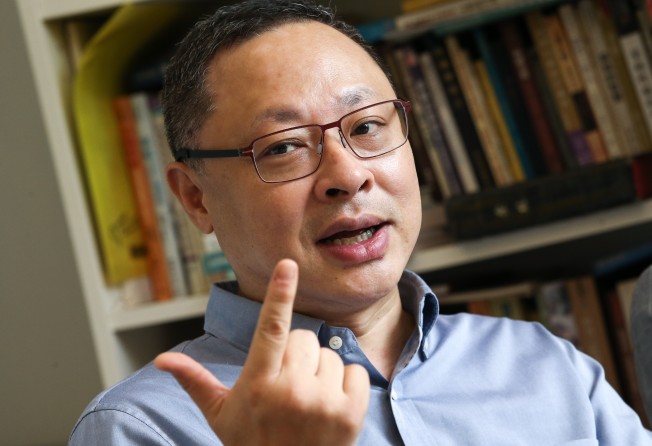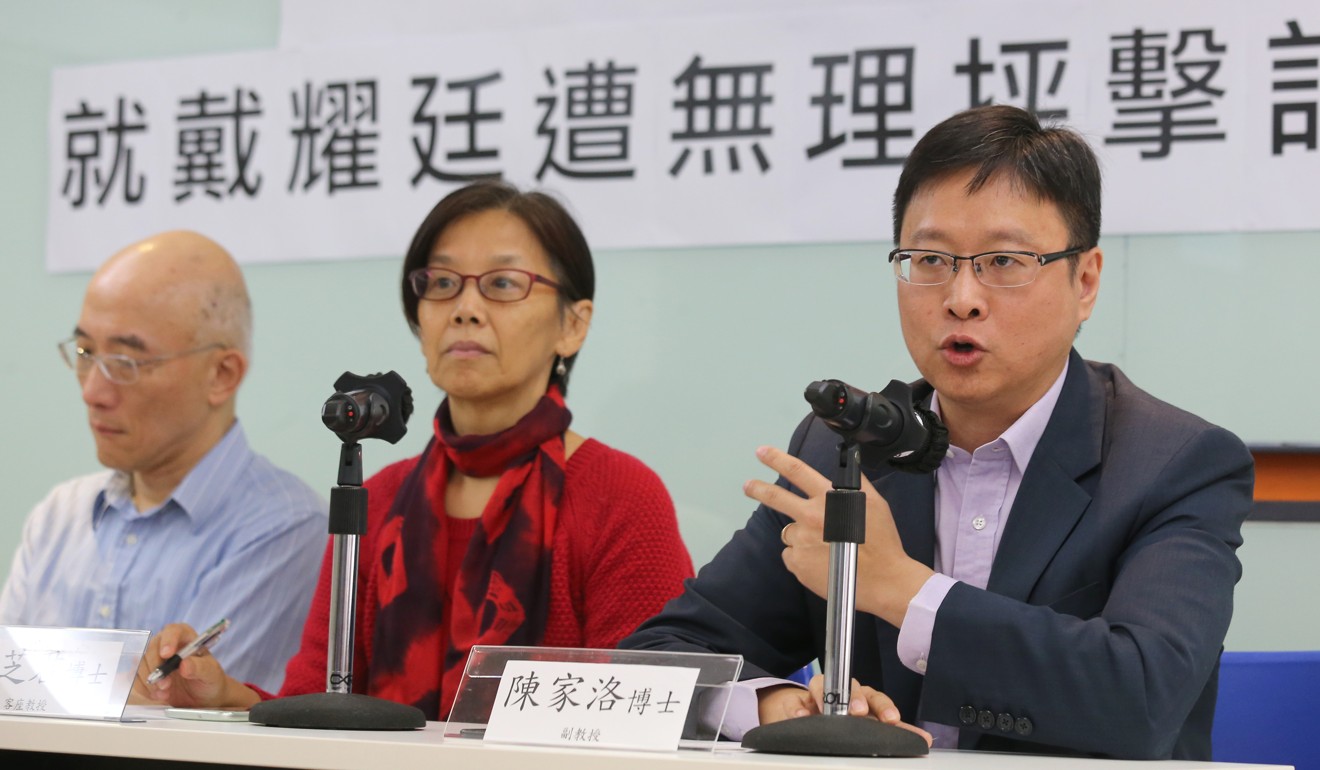No need to link Benny Tai’s independence comments to launch of national security laws, Hong Kong No 2 official says
Matthew Cheung speaks up on row as supporters of Occupy co-founder say the controversial academic’s remarks have been blown out of proportion to ‘pave the way’ for Article 23 legislation

Hong Kong’s No 2 official said on Thursday there was no need to associate Benny Tai Yiu-ting’s independence comments with the enactment of a controversial national security law, amid growing concerns that the government would use the saga to justify accelerating the process of legislation.
Chief Secretary Matthew Cheung Kin-chung is the first local official to weigh in on the matter since the government released a statement last Friday to strongly condemn Tai’s remarks.
The embattled academic also received sharp rebukes from Beijing’s two departments in charge of Hong Kong affairs, as well as mainland media and local pro-establishment lawmakers.
Cheung said on Thursday: “The two issues are absolutely unrelated. The chief executive mentioned in her policy address [last year] that we need to create a suitable social atmosphere before we can push forward Article 23 legislation.
“It is unnecessary to link Article 23 legislation with this incident.”
Cheung also reiterated the administration’s opposition to pro-independence sentiments.
Under Article 23 of the Basic Law, the city’s mini-constitution, the government is required to enact laws against sedition or treason. The last attempt to do so – in 2003 – was shelved after widespread public outcry over the perceived threat to freedoms.
Tai, a co-founder of the 2014 Occupy movement, a civil disobedience campaign for greater democracy, has been in hot water since last month, when he told a forum in Taiwan that Hong Kong could “consider becoming an independent state” some day in a “democratic China”.
He has insisted he is not in favour of independence, and that he was speaking hypothetically.

Tai earlier questioned if the high-profile attack from the government was to pave the way for the legislation. Only a few pro-Beijing figures, including Tam Yiu-chung, the city’s sole deputy to the National People’s Congress Standing Committee – China’s top legislative body – had brought up the law when commenting on the case.
On Thursday, Tam said the local government needed to enact Article 23 legislation before its term ends in June 2022. The former lawmaker, who earlier called on the University of Hong Kong to evaluate if Tai was fit to teach in light of his comments, rejected the idea that the academic was being oppressed.
We will not retreat because of the intimidation enforced by those in power
“[Safeguarding] national security and territorial integrity is every person’s responsibility, this is written in the constitution and Basic Law,” he said, adding that Tai’s remarks went beyond the scope of free speech and academic freedom.
The saga grew on Thursday with press groups, including the Hong Kong Journalists Association, issuing a statement pushing for the government to clarify the legal controversy.
The Scholars’ Alliance for Academic Freedom also issued a statement in Tai’s defence, saying his words had been taken out of context on purpose and urging the UN Human Rights Committee to consider the incident when reviewing the city’s freedoms.
“We are disturbed to observe that Mr Tai’s speech and idea have been deliberately twisted for the purpose of a new round of political persecution against him,” the statement read.
Kenneth Chan Ka-lok, an alliance member and associate professor at Baptist University, said academic freedom and free speech were among the city’s core values.
“[They] are the basis of human dignity. We will not retreat because of the intimidation enforced by those in power,” he said.
Tai posted another message on his Facebook page on Thursday, saying that the recent remarks by pro-Beijing figures suggested “you are already pro-independence as long as you do not support the eternal reign of the Chinese Communist Party”.
He argued that even the party’s leadership probably did not genuinely believe they could stay in power forever. “Otherwise, why did their family members have properties, assets, and rights of abode overseas?”
Meanwhile, pro-Beijing newspaper Ta Kung Pao hit back at Tai’s comments over pictures it published of him. In an online post on Tuesday, Tai said he had taken precautions to stop reporters photographing him, adding that it was possible someone had hacked his phone or computer messages to tail him.
He said he was under surveillance by a “powerful law enforcement agency”, a term widely used to refer to mainland agents.
In a statement on Thursday the paper said Tai’s comments were “bizarre” and accused him of “self-manufactured” persecution.
Additional reporting by Sum Lok-Kei